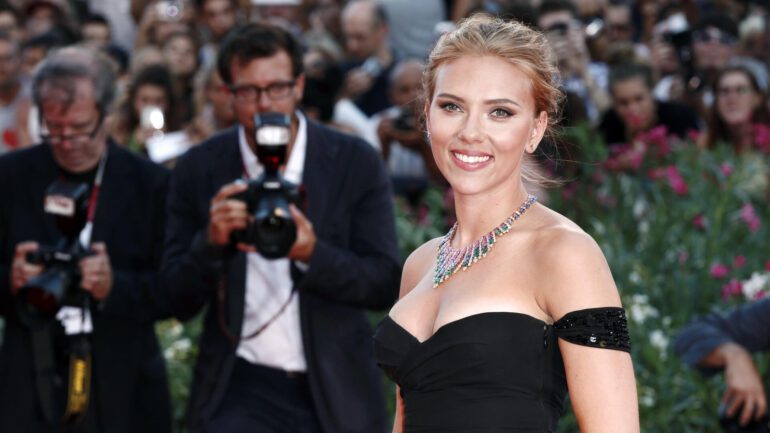TL;DR:
- Scarlett Johansson takes legal action against an AI app developer for using her name and likeness in an online ad.
- The ad promoted an AI image editor, featuring an AI-generated version of Johansson’s voice.
- Johansson’s attorney, Kevin Yorn, asserts that she was never a spokesperson for the app.
- Convert Software, the developer, included a disclaimer in small print at the bottom of the ad.
- The rapid advancement of AI technology raises concerns about identity and intellectual property rights.
- Musicians face challenges with voice-cloning, while deepfake technology poses threats to digital likeness rights.
Main AI News:
In the realm of legal battles, Scarlett Johansson is making headlines once again, this time taking on an AI app developer for alleged misuse of her identity. The issue at hand revolves around an online advertisement promoting an AI image editor named Lisa AI: 90s Yearbook & Avatar. This promotional material featured an AI-generated version of Johansson’s distinctive voice.
The 22-second advertisement initially showcased Scarlett Johansson in a behind-the-scenes glimpse while filming her role in “Black Widow.” In the video, she cordially greets the audience with the words, “What’s up, guys? It’s Scarlett, and I want you to come with me.” However, the advertisement then takes an unexpected turn as it shifts away from Johansson’s presence, introducing an AI-generated voice, deliberately designed to mimic the actress, stating, “It’s not limited to avatars only. You can also create images with texts and even your AI videos. I think you shouldn’t miss it.“
Toward the conclusion of the advertisement, it’s worth noting that Convert Software, the company responsible for the app, includes a disclaimer in small print that reads: “Images produced by Lisa AI. It has nothing to do with this person.” Johansson’s representatives have swiftly responded, clarifying that the actress was never affiliated with the app in any official capacity. Kevin Yorn, Johansson’s attorney, has taken proactive legal measures to address the situation.
In a statement to Variety, Yorn emphasized, “We do not take these matters lightly. Per our usual course of action in these circumstances, we will deal with it using all available legal remedies.” As of now, neither Yorn nor Convert Software has provided additional insights into the specifics of the legal proceedings.
As AI technology continues to advance and become more accessible, incidents like these may become increasingly common. Musicians, for instance, are grappling with the challenges posed by voice-cloning technology, which can convincingly emulate popular artists like Drake or Johnny Cash. Furthermore, deepfake technology raises concerns about the unauthorized use of AI-generated likenesses, as evidenced by a scenario where Tom Hanks’ digital avatar could potentially appear in a dental plan advertisement without his consent. The implications of these developments for intellectual property and privacy rights are issues that the legal system will undoubtedly confront in the coming years.
Conclusion:
This legal clash between Scarlett Johansson and an AI app developer highlights the emerging challenges and potential risks associated with AI technology in the market. As AI becomes more accessible, issues related to identity and intellectual property rights are likely to become more frequent. Businesses need to navigate these legal complexities carefully when incorporating AI into their marketing strategies to avoid similar confrontations and safeguard their brand reputation.

